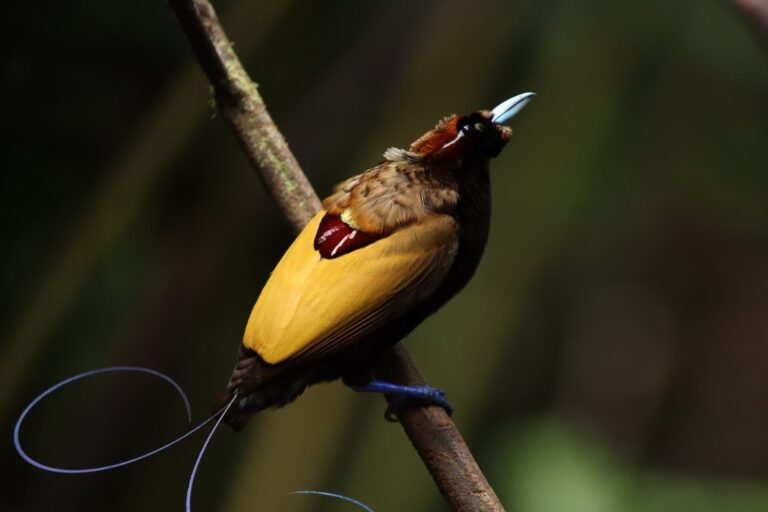The island of New Guinea is famed for its eye-popping diversity of plants, animals and human cultures. Estimated to host one-tenth of Earth’s species, it’s the world’s second-largest island and has the third-largest intact expanse of tropical forest in the world, after the Amazon and the Congo. It’s where birds-of-paradise perform their effervescent courtship displays, tree kangaroos shimmy up trees to dizzying heights, and the world’s largest butterfly flits between foliage in the forest canopy. This extraordinary biodiversity is partly the result of centuries of evolutionary isolation at the edge of the western Pacific, where the biota of Asia and Australasia meet. It also comes from powerful tectonic activity that shaped a rugged and mountainous landscape, making many areas difficult for humans to access and develop. Today, roughly 80% of New Guinea’s forest cover remains intact, sharply contrasting with nearby islands like Borneo, Java and Sumatra, which have seen extensive development and deforestation. However, experts are increasingly concerned that developers are shifting their focus to New Guinea, which is split roughly in half between Indonesia, which controls the island’s west, and Papua New Guinea, in the east. Major road schemes, industrial logging and agricultural conglomerates pushing biofuel agendas are carving into the island’s ancient landscapes, especially on the Indonesian side. A new study that models deforestation risk across the island predicts that its low-elevation forests are likely to be especially vulnerable. This is worrisome, the authors note, since these ecosystems are among the tallest, most biologically rich and carbon-dense ecosystems…This article was originally published on Mongabay
Search
Recent Research
Want your Blog Article featured on our website?
Research
Featured News
COP30: Firm to connect institutions with international climate finance opportunities
SISTME, a climate change and biodiversity conservation consulting firm based in Argentina, has offered to
From resistance to planetary governance, Indigenous women redefine global climate action
While world leaders negotiate behind closed doors in the Blue Zone of COP30, Indigenous Women
Sahara Group Foundation launches 16th Sahara Go Recycling Hub to boost environmental sustainability, economic empowerment
Sahara Group Foundation, the corporate social impact arm of Sahara Group, has commissioned its 16th
Climate finance is the lifeblood of climate action – Simon Stiell at COP30
Remarks delivered by UN Climate Change Executive Secretary, Simon Stiell, at the third High-Level Ministerial
UNDP, REA, GEF commission Plateau solar mini-grid to power agricultural value chains, empower rural communities
The United Nations Development Programme (UNDP), in partnership with the Rural Electrification Agency (REA) and
COP30: Africa urges world leaders to turn pledges into action
Africa has called on the world leaders to turn their pledges into action regarding the
Thousands join global marches calling on govts at COP30 to deliver climate justice
An estimated 30,000 people marched through the Brazilian city of Belém on Saturday, November 15,
Week in wildlife: a ferocious wildcat, a cheeky seal and a disgruntled lioness
The best of this week’s wildlife photographs from around the world Continue reading...


